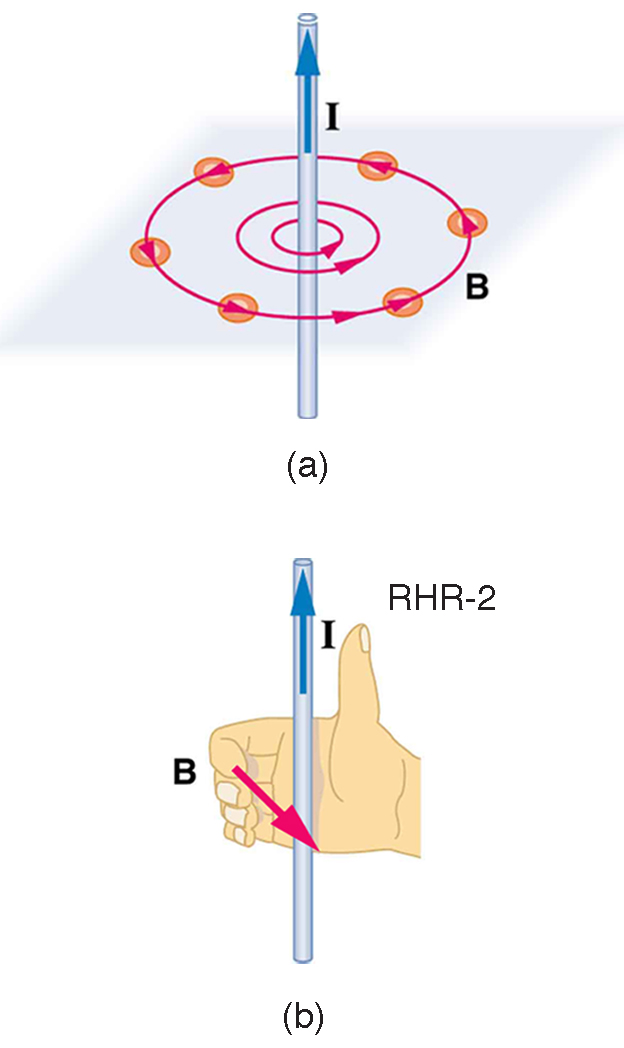| << Chapter < Page | Chapter >> Page > |
How much current is needed to produce a significant magnetic field, perhaps as strong as the Earth’s field? Surveyors will tell you that overhead electric power lines create magnetic fields that interfere with their compass readings. Indeed, when Oersted discovered in 1820 that a current in a wire affected a compass needle, he was not dealing with extremely large currents. How does the shape of wires carrying current affect the shape of the magnetic field created? We noted earlier that a current loop created a magnetic field similar to that of a bar magnet, but what about a straight wire or a toroid (doughnut)? How is the direction of a current-created field related to the direction of the current? Answers to these questions are explored in this section, together with a brief discussion of the law governing the fields created by currents.
Magnetic fields have both direction and magnitude. As noted before, one way to explore the direction of a magnetic field is with compasses, as shown for a long straight current-carrying wire in [link] . Hall probes can determine the magnitude of the field. The field around a long straight wire is found to be in circular loops. The right hand rule 2 (RHR-2) emerges from this exploration and is valid for any current segment— point the thumb in the direction of the current, and the fingers curl in the direction of the magnetic field loops created by it.

The magnetic field strength (magnitude) produced by a long straight current-carrying wire is found by experiment to be
where is the current, is the shortest distance to the wire, and the constant is the permeability of free space . is one of the basic constants in nature. We will see later that is related to the speed of light.) Since the wire is very long, the magnitude of the field depends only on distance from the wire , not on position along the wire.
Find the current in a long straight wire that would produce a magnetic field twice the strength of the Earth’s at a distance of 5.0 cm from the wire.
Strategy
The Earth’s field is about , and so here due to the wire is taken to be . The equation can be used to find , since all other quantities are known.
Solution
Solving for and entering known values gives
Discussion
So a moderately large current produces a significant magnetic field at a distance of 5.0 cm from a long straight wire. Note that the answer is stated to only two digits, since the Earth’s field is specified to only two digits in this example.

Notification Switch
Would you like to follow the 'College physics (engineering physics 2, tuas)' conversation and receive update notifications?